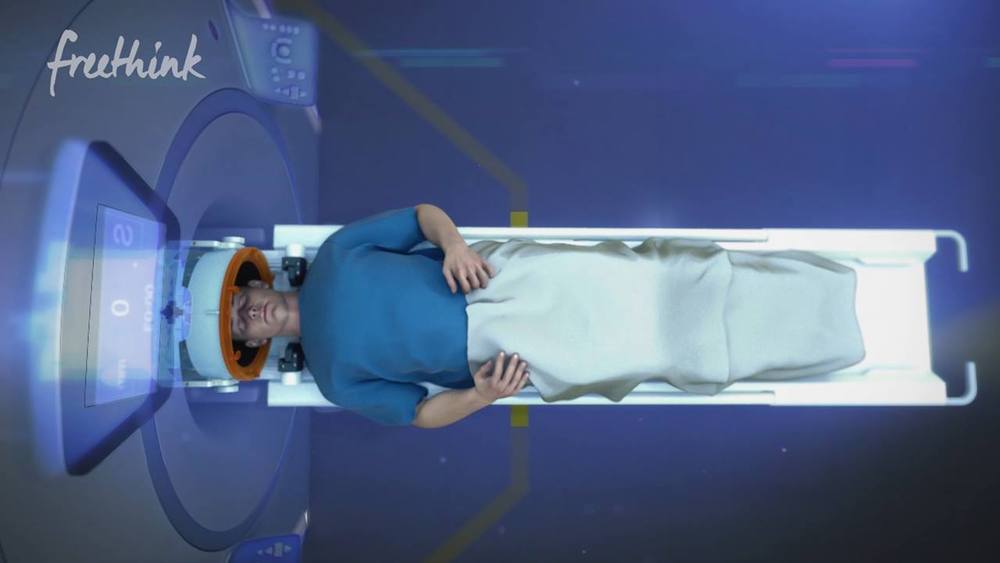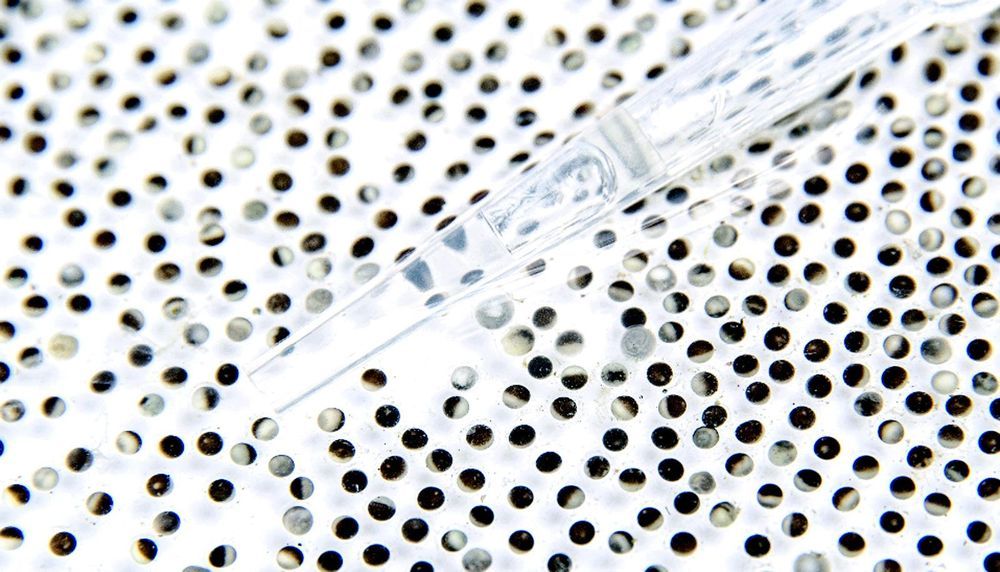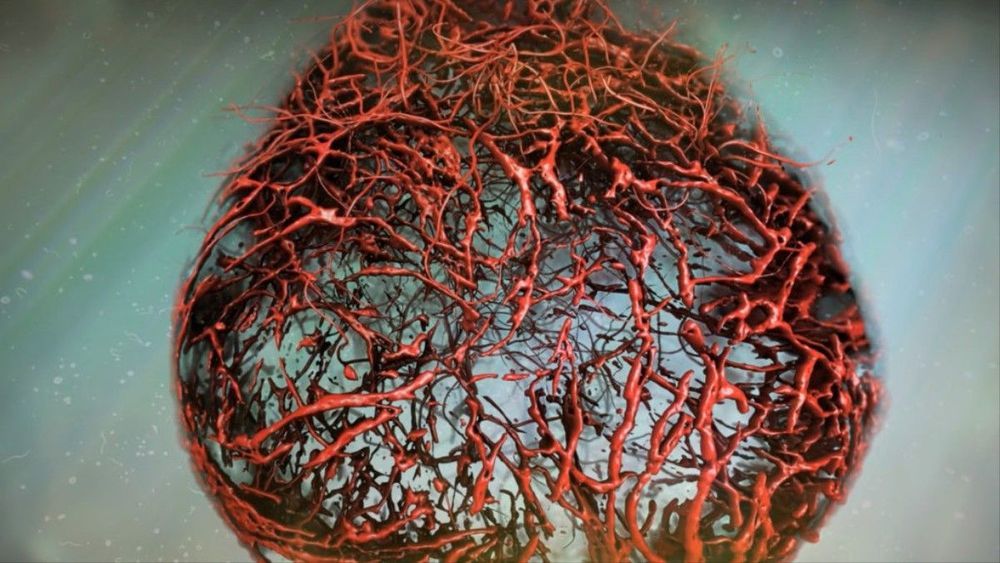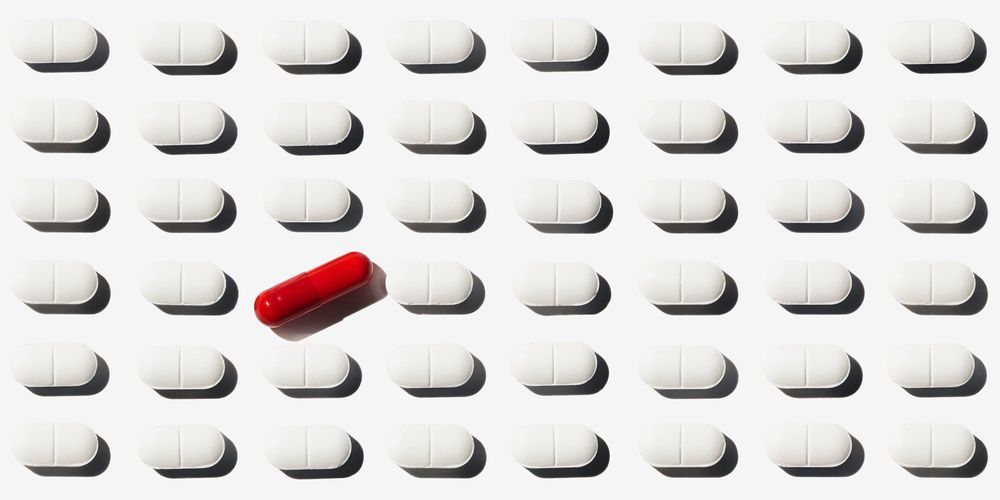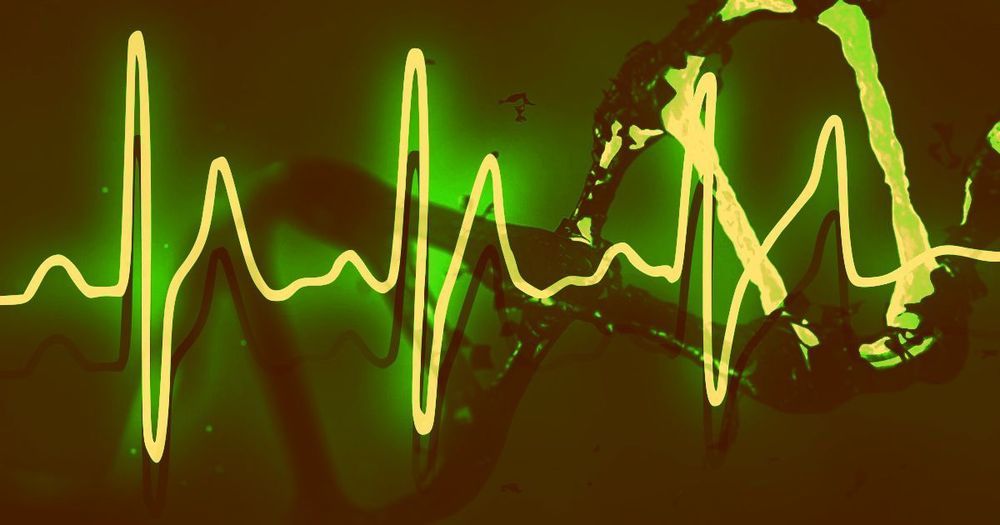Archive for the ‘biotech/medical’ category: Page 2193
Jan 17, 2019
Frog eggs reveal pathways for DNA repair
Posted by Genevieve Klien in category: biotech/medical
DNA is always getting messed up and having to repair itself. Now, researchers have figured out some of the pathways cells use to fix it.
Jan 17, 2019
Scientists Figured Out How to Separate Pain From Physical Suffering
Posted by Genevieve Klien in categories: biotech/medical, neuroscience
“We wanted to be more precise here and identify the region and the cells that are responsible for pain unpleasantness,” Scherrer tells Inverse. “We thought if we could find the center, or the cells in the brain that make pain unpleasant, perhaps acting on these cells could be a good strategy to reduce pain in chronic pain patients.”
It’s already established that the amygdala plays a role in the emotional component of pain, but this team actually found the exact cells in the amygdala responsible for those unpleasant pain messages by using a “miniscope,” a tool created by Schnitzer, and observing how mice responded to painful stimuli.
When mice in their experiment were exposed to a drop of scalding water, a given a pinprick, or asked to run along unpleasantly hot tracks, these cells in the amygdala were highly active. Importantly, Schnitzer adds, they didn’t light up when the mice were exposed to other stimuli like sugar water or a bad smell. “Every time mice were unpleased with the stimulation, we saw that these cells were turned on,” he adds.
Continue reading “Scientists Figured Out How to Separate Pain From Physical Suffering” »
Jan 17, 2019
Dragon blood may help wounds heal faster
Posted by Shane Hinshaw in category: biotech/medical
Jan 16, 2019
A Review of the Potential of Phytochemicals from Prunus africana (Hook f.) Kalkman Stem Bark for Chemoprevention and Chemotherapy of Prostate Cancer
Posted by James Christian Smith in categories: augmented reality, biotech/medical
Prostate cancer remains one of the major causes of death worldwide. In view of the limited treatment options for patients with prostate cancer, preventive and treatment approaches based on natural compounds can play an integral role in tackling this disease. Recent evidence supports the beneficial effects of plant-derived phytochemicals as chemopreventive and chemotherapeutic agents for various cancers, including prostate cancer. Prunus africana has been used for generations in African traditional medicine to treat prostate cancer. This review examined the potential roles of the phytochemicals from P. africana, an endangered, sub-Saharan Africa plant in the chemoprevention and chemotherapy of prostate cancer. In vitro and in vivo studies have provided strong pharmacological evidence for antiprostate cancer activities of P. africana-derived phytochemicals. Through synergistic interactions between different effective phytochemicals, P. africana extracts have been shown to exhibit very strong antiandrogenic and antiangiogenic activities and have the ability to kill tumor cells via apoptotic pathways, prevent the proliferation of prostate cancer cells, and alter the signaling pathways required for the maintenance of prostate cancer cells. However, further preclinical and clinical studies ought to be done to advance and eventually use these promising phytochemicals for the prevention and chemotherapy of human prostate cancer.
Prostate cancer is one of the most common nonskin cancers in men. It is caused by unregulated prostate cell division, which leads to abnormal growth, with the potential to spread to other parts of the body [1]. These neoplastic cells originate from highly specialized cells through a process of regression to an advanced stage. Unlike the normal parent cells, these cells divide continuously, resulting in a tumor. Approximately, 9–11% of men are at risk of clinically suffering from prostate cancer in their life time [2–5]. Prostate cancer is typically androgen-dependent during its initial stages when the hormone androgen binds to the androgen receptor (AR) and then transactivates target genes [6, 7]. Androgen and AR-mediated signaling are therefore crucial for the development and functioning of both the normal prostate and prostate cancer.
Jan 16, 2019
Chaos in the body tunes up your immune system
Posted by Xavier Rosseel in category: biotech/medical
Chaos in bodily regulation can optimize our immune system according to a recent discovery made by researchers at the University of Copenhagen’s Niels Bohr Institute. The discovery may prove to be of great significance for avoiding serious diseases such as cancer and diabetes.
Wide gaps exist in our understanding of how the immune system works and how we might avoid diseases such as cancer and diabetes. Now, two researchers at the University of Copenhagen’s Niels Bohr Institute have made a discovery that could prove to be an important piece of the puzzle. PhD Mathias Heltberg and Professor Mogens Høgh Jensen have found an entirely new mechanism in the way that bodily cells regulate themselves — through chaos.
The researchers investigated how a particular protein produced within cells, NF-kB, stimulates genes. Among other things, this particular protein is vital for maintaining the body’s immune defense system and thereby, the body’s ability to combat disease. The concentration of NF-kB fluctuates over time, and these swings impact the genes and subsequently, the condition of cells.
Jan 16, 2019
Unintended side effects: antibiotic disruption of the gut microbiome dysregulates skeletal health
Posted by Xavier Rosseel in categories: biotech/medical, health
Microbes are often seen as pathogens that cause disease and antibiotics have been used successfully to combat these foreign invaders. In reality, the picture is more complex. Most of the time we live in harmony with our commensal gut microbiota, which is the collection of microorganisms colonizing the healthy gut. Commensal bacteria regulate host biological functions, including skeletal health. Researchers at the Medical University of South Carolina (MUSC) studying osteoimmunology, the interface of the skeletal and immune systems, have examined the impact of disrupting the healthy gut microbiome with antibiotics on post-pubertal skeletal development. Their results, published online on the January 16, 2019 in the American Journal of Pathology, showed that antibiotic disruption of the gut microbiota induced a pro-inflammatory response that led to increased activity of osteoclasts.
“This report introduces antibiotics as a critical exogenous modulator of gut microbiota osteoimmune response during post-pubertal skeletal development,” says Chad M. Novince, D.D.S., Ph.D., assistant professor in both the Colleges of Medicine and Dental Medicine who studies the impact of the microbiome on osteoimmunology and skeletal development. “People have shown that antibiotics perturb the microbiota, but this is the first known study evaluating how that has downstream effects on immune cells that regulate bone cells and the overall skeletal phenotype. This work brings the whole story together.”
The post-pubertal phase of development is a critical window of plasticity that supports the accrual of approximately 40 percent of our peak bone-mass. Recent work by the Novince lab and others has shown that the gut microbiota contributes to skeletal health. To determine the impact of antibiotic perturbation of the gut microbiota in post-pubertal skeletal development, Novince worked with team members at MUSC and treated mice with a cocktail of three antibiotics. In collaboration with microbiome scientist Alexander V. Alekseyenko, Ph.D., associate professor in the Biomedical Informatics Center and founding director of the MUSC Program for Human Microbiome Research, they were able to show that antibiotic treatment led to major alterations in the gut microbiota, resulting in specific changes to large groups of bacteria.
Jan 16, 2019
Researchers Create Perfect Blood Vessels in a Petri Dish for the First Time
Posted by Genevieve Klien in category: biotech/medical
The researchers also demonstrated that it is possible to grow functioning human blood vessels in another species.
Jan 16, 2019
Antibiotics Are Failing Us. Crispr Is Our Glimmer of Hope
Posted by Genevieve Klien in category: biotech/medical
Antibiotics are still massively overprescribed, a new study shows. With no new drugs in sight, some scientists are turning to Crispr for a reboot.
Jan 16, 2019
Scientists Claim They Can Predict Your Lifespan From Your DNA
Posted by Shane Hinshaw in category: biotech/medical
As soon as you’re born, they can predict when you’re likely to die.
They just need to look at 12 parts of your genome.
